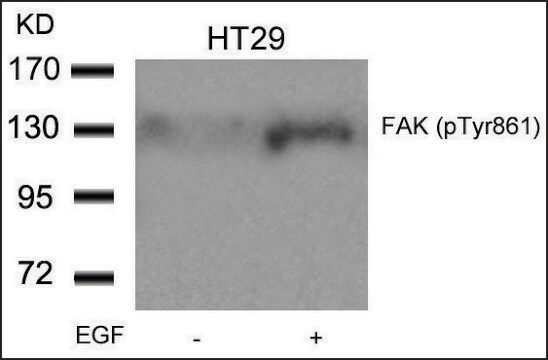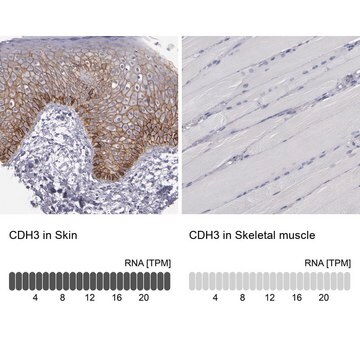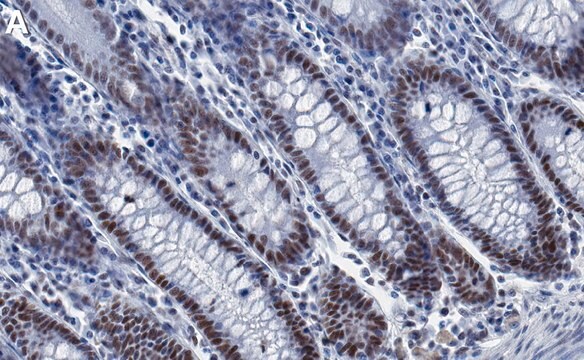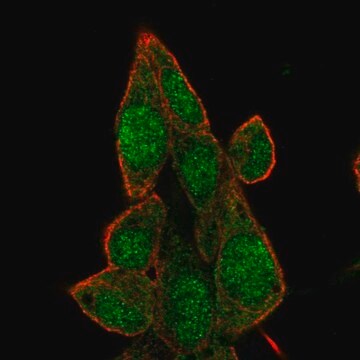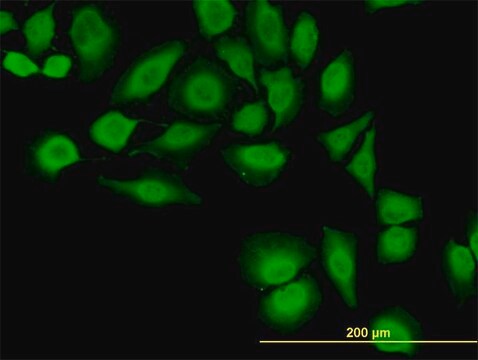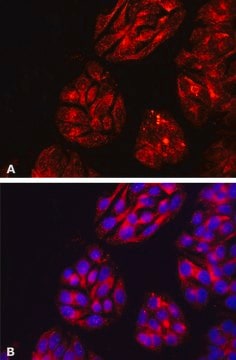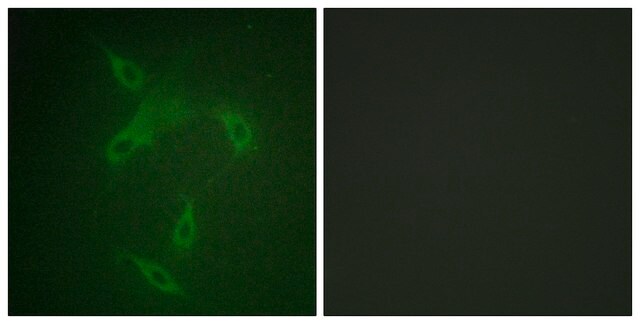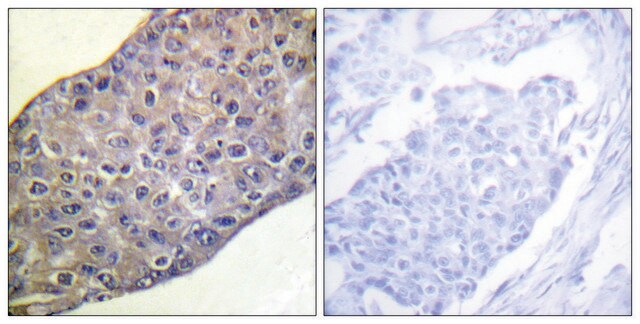SAB4200047
Anti-BRD7 antibody, Rat monoclonal
clone BRM 2D3, purified from hybridoma cell culture
Synonim(y):
Anti-BP75, Anti-Bromodomain containing 7, Anti-CELTIX1, Anti-NAG4, Monoclonal Anti-BRD7 antibody produced in rat
About This Item
Polecane produkty
pochodzenie biologiczne
rat
białko sprzężone
unconjugated
forma przeciwciała
purified from hybridoma cell culture
rodzaj przeciwciała
primary antibodies
klon
BRM 2D3, monoclonal
Postać
buffered aqueous solution
masa cząsteczkowa
antigen ~80 kDa
reaktywność gatunkowa
rat, mouse, monkey, human, bovine, canine
opakowanie
antibody small pack of 25 μL
metody
immunocytochemistry: suitable
immunoprecipitation (IP): suitable
western blot: 0.5-1.0 μg/mL using HeLa cells extract
izotyp
IgG2a
numer dostępu UniProt
Warunki transportu
dry ice
temp. przechowywania
−20°C
docelowa modyfikacja potranslacyjna
unmodified
informacje o genach
human ... BRD7(29117)
Opis ogólny
Zastosowanie
- immunoblotting
- immunoprecipitation
- immunocytochemistry
Działania biochem./fizjol.
Postać fizyczna
Oświadczenie o zrzeczeniu się odpowiedzialności
Nie możesz znaleźć właściwego produktu?
Wypróbuj nasz Narzędzie selektora produktów.
Kod klasy składowania
10 - Combustible liquids
Temperatura zapłonu (°F)
Not applicable
Temperatura zapłonu (°C)
Not applicable
Certyfikaty analizy (CoA)
Poszukaj Certyfikaty analizy (CoA), wpisując numer partii/serii produktów. Numery serii i partii można znaleźć na etykiecie produktu po słowach „seria” lub „partia”.
Masz już ten produkt?
Dokumenty związane z niedawno zakupionymi produktami zostały zamieszczone w Bibliotece dokumentów.
Nasz zespół naukowców ma doświadczenie we wszystkich obszarach badań, w tym w naukach przyrodniczych, materiałoznawstwie, syntezie chemicznej, chromatografii, analityce i wielu innych dziedzinach.
Skontaktuj się z zespołem ds. pomocy technicznej